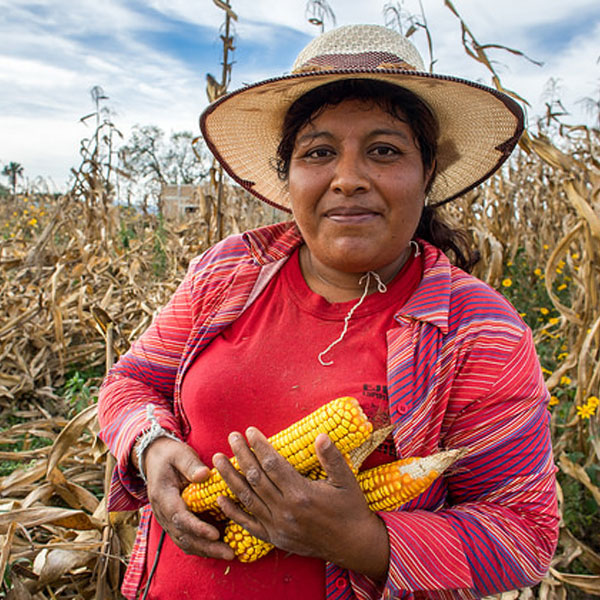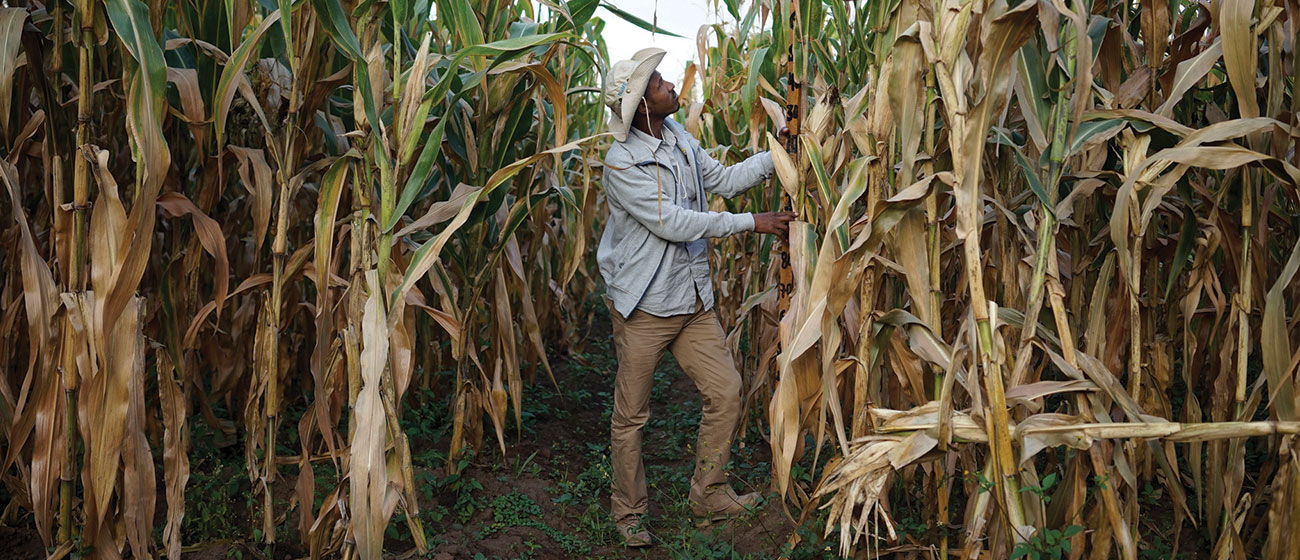CIMMYT develops and distributes improved maize inbred lines and hybrids to partners worldwide. This work improves the food security, incomes, and livelihoods of millions of smallholder farmers and their families in the tropics and subtropics of Africa, Asia, and Latin America.
 The objectives of CIMMYT’s maize breeding and seed systems work are to:
The objectives of CIMMYT’s maize breeding and seed systems work are to:
- Develop genetically diverse, high-yielding maize inbred lines and hybrids, combining multiple-stress tolerance, nutrient use efficiency, enhanced nutritional quality, and desirable seed production properties for target production zones.
- Accelerate the rate at which the genetic potential for maize yields increases each year and improve the efficiency of maize breeding operations, through integrated application of modern tools and technologies.
- Deploy CIMMYT-derived improved maize varieties in the tropics through public-private partnerships, while strengthening local maize seed production and delivery systems.
- Build local capacity—particularly of women and youth—in maize breeding and seed systems through training and knowledge exchange.
CIMMYT’s maize breeding work aims at developing easy-to-produce, best-bet hybrids, elite maize lines, and improved open-pollinated varieties, as well as science-based recommendations for varietal targeting and improved productivity in target regions.
In addition to higher grain yield, CIMMYT’s maize breeding teams focus on
- Yield stability in stress-prone environments, through tolerance to drought, heat, and poorly fertile soils.
- Resistance to major diseases, insect pests, and parasitic weeds.
- Enhanced nutritional qualities, such as provitamin A, high-kernel zinc, and quality protein maize.
This work is supported by cutting-edge tools and technologies, including doubled haploids, molecular markers, and high-throughput field-based phenotyping.
CIMMYT’s research and work on maize breeding and seed systems is accomplished through strong public-private partnerships.
CIMMYT led the CGIAR Research Program on Maize (MAIZE).



 Environmental health and biodiversity, Poverty reduction, livelihoods and jobs
Environmental health and biodiversity, Poverty reduction, livelihoods and jobs